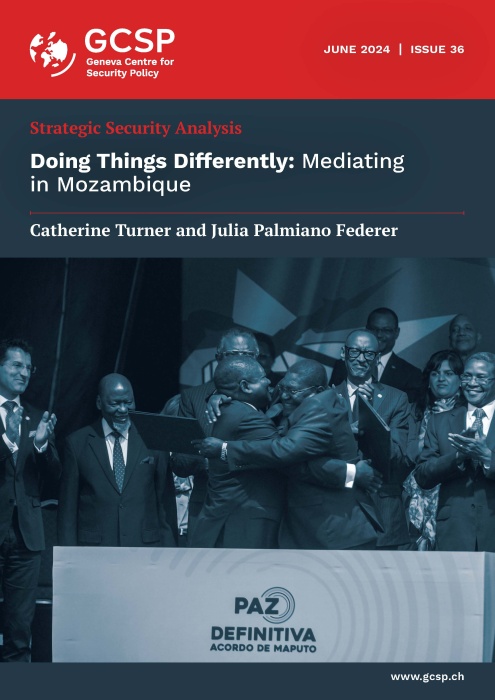©Peace Process Support
Doing Things Differently: Mediating in Mozambique
18 June 2024
Key points
- The mediation and implementation of the Maputo Accord for Peace and National Reconciliation (Maputo Accord) in Mozambique (signed in 2019) offer lessons on breaking with conventional and traditional approaches to peace processes in order to achieve success.
- The mediation of the Maputo Accord put Mozambican actors in the driving seat of the process. This approach foregrounded the agency of the parties through a human-centred process design that prioritised the dignity of Mozambican actors and the country itself.
- The mediation was underpinned by a flexible and agile approach built on networked dialogue, adaptive mediation, and incremental implementation based on trust and relationships between mediators and the Principals.
- The strategic leadership of the mediators was a core component of the success of the mediation process and emphasised the values of humility and empathy, and the centrality of working in a team.
- The process leading to the signing of the Maputo Accord was made possible by effective financial coordination between international actors such as donors, contact groups, and embassy staff that prioritised core trust-based funding over project-based short-term support.
- The process prioritised an approach of “bespoke inclusion” that was co-created with the parties.
- These flexible, agile, and creative approaches to mediation process design decentre mediation actors and centre the parties themselves. These principles can offer lessons for a mediation field characterised by fragmentation, mistrust and polarisation.
Disclamer: The views, information and opinions expressed in this publication are the authors’ own and do not necessarily reflect those of the GCSP or the members of its Foundation Council. The GCSP is not responsible for the accuracy of the information.



